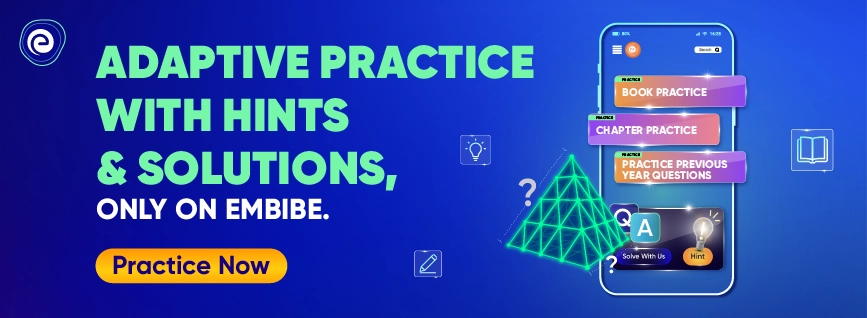- Written by gnanambigai
- Last Modified on 5-12-2024
Manipur Board Class 7 Exam 2025
The Board of Secondary Education Manipur commonly known as Manipur Board or BSEM is an educational body that is responsible for conducting exams in the state of Manipur. The BSEM is responsible for the prescribing syllabus and preparing, printing and distributing the textbooks for Classes I to X. It also sets the guidelines to conduct the secondary and primary school exams at the respective schools.
The Manipur Board Class 7 exam is conducted at the school by adhering to the rules set by the board. Class 7 forms the foundation for higher classes, which is why students should prepare for the exam right from the start. This article discusses the Manipur Board Class 7 exam 2025 in detail. Scroll down to know more about BSEM Class 7 syllabus, textbooks, and exam preparation tips.
Manipur Board Class 7 Exam Summary
The BSEM is in charge of regulating, organising, and overseeing all aspects of school education in Manipur. The exam dates and result dates are set by the respective school ensuring it falls within the timeline that the board prescribed. Students can check the table below to know the details about the class 7 exam:
| Particulars |
Details |
| Name of the Exam |
Manipur Board Class 7 Exam |
| Conducting Body |
Manipur Board of Secondary Education |
| Exam Frequency |
Once a Year |
| Exam Duration |
2 Hours for Each Subject |
| Subjects |
First Language
Second Language
Third Language
Mathematics
Science and Technology
Social Sciences
Work Education
Art Education (Fine Arts: Visual and Performing Arts)
Health and Physical Education (Including Games and Sports, Yoga, NCC and Scouting and Guiding) |
Manipur Board Official Website Link
https://manipureducation.gov.in/
Manipur Board Class 7 Exam Pattern
The Manipur Board class 7 exam pattern includes the distribution of marks, exam duration, and the minimum qualifying marks. Students should know the Manipur board class 7 exam pattern for better preparation.The Manipur Board also incorporates the Continuous and Comprehensive Evaluation System format. CBSE (Central Board of Secondary Education) started the Continuous and Comprehensive Evaluation System (CCE) in order to assess students’ learning and development. The CCE pattern helps students in gaining overall education of various problem–solving and brainstorming areas apart from academics.
As per the existing norms of CCE, four periodic tests and two term tests are conducted.
- Periodic Exams: The periodic tests are held in March, May, July and September carrying 20 marks each in every subject.
- Term exams: Two term tests are conducted in the month of June and November / December carrying 50 marks each.
Manipur Board Class 7 Exam Syllabus
The syllabus is an important resource that students should have while preparing for the exam. It gives them an overview of the subject and helps them know what chapters are included. The Manipur Board class 7 includes the following subjects in the syllabus:
- Mathematics
- Science
- Social Science
- First Language – Manipuri/ Hindi
- Second Language – English
- Third Language
- Manipuri – for those who do not choose Manipuri as the first language.
- Hindi – for those who do not choose Hindi as the first language.
- Elementary Hindi or Manipuri – for those who do not choose Manipuri or Hindi as the first language.
- Any one of the recognised tribal languages – for those who do not choose tribal languages as the first languages.
Students can find the Manipur Board Class 7 subject-wise syllabus in the following sections.
Manipur Board Class 7 Mathematics Syllabus
Class 7 Maths introduces students to basic concepts that form the fundamentals for highr classes. Therefore, students should ensure that they master the concepts and also practice questions rigorously. The Manipur Board Class 7 Mathematics syllabus is given in the table below:
| Chapter No. |
Chapter Name |
| 1 |
Integer |
| 2 |
Fractions and Decimals |
| 3 |
Data Handling |
| 4 |
Simple Equations |
| 5 |
Lines and Angles |
| 6 |
The Triangle and its Properties |
| 7 |
Congruence of Triangles |
| 8 |
Comparing Quantities |
| 9 |
Rational Numbers |
| 10 |
Practical Geometry |
| 11 |
Perimeter and Area |
| 12 |
Algebraic Expressions |
| 13 |
Exponents and Powers |
| 14 |
Symmetry |
| 15 |
Visualising Solid Shape |
Manipur Board Class 7 Science Syllabus
Class 7 Science deals with the study of plants and animals, various phenomena of the natural and physical world, and many more. Students should have a complete understanding of the topics to score good marks in the exam. Refer to the table below to know the Science syllabus of Manipur Board Class 7:
| Chapter No. |
Chapter Name |
| 1 |
Nutrition in Plants |
| 2 |
Nutrition in Animals |
| 3 |
Fibre to Fabric |
| 4 |
Heat |
| 5 |
Acids, Bases and Salts |
| 6 |
Physical and Chemical Changes |
| 7 |
Weather, Climate and Adaptations of Animals of Climate |
| 8 |
Winds, Storms and Cyclones |
| 9 |
Soil |
| 10 |
Respiration in Organisms |
| 11 |
Transportation in Animals and Plants |
| 12 |
Reproduction in Plants |
| 13 |
Motion and Time |
| 14 |
Electric Current and its Effects |
| 15 |
Light |
| 16 |
Water – A Precious Resource |
| 17 |
Forests – Our Lifeline |
| 18 |
Wastewater Story |
Manipur Board Class 7 Social Science Syllabus
The Social Science syllabus contains three sections: History, Political Science, and Geography. The syllabus is designed to help students understand humanity – their past, ways of living and governance, geographical locations, and many more. Students can find the detailed section-wise syllabus for Manipur Board Class 7 Social Science in the table below:
Manipur Board Class 7 History Syllabus (Our Pasts II)
Students can refer to the History chapters given in the table below:
| Chapter No. |
Chapter Name |
| 1 |
Tracing Changes through a Thousand Years |
| 2 |
New Kings and Kingdoms |
| 3 |
The Delhi Sultans |
| 4 |
The Mughal Empire |
| 5 |
Rulers and Buildings |
| 6 |
Towns, Traders and Craftspersons |
| 7 |
Tribes, Nomads and Settled Communities |
| 8 |
Devotional Paths to the Divine |
| 9 |
The Making of Regional Cultures |
| 10 |
Eighteenth-Century Political Formations |
Manipur Board Class 7 Political Science Syllabus
Refer to the chapters included in Political Science in the table below.
| Chapter No. |
Chapter Name |
| 1 |
On Equality |
| 2 |
Role of the Government in Health |
| 3 |
How the State Government Works |
| 4 |
Growing up as Boys and Girls |
| 5 |
Women Change the World |
| 6 |
Understanding Media |
| 7 |
Understanding Advertising |
| 8 |
Markets Around Us |
| 9 |
A Shirt in the Market |
| 10 |
Struggles for Equality |
Manipur Board Class 7 English Syllabus
The English syllabus is designed to promote language growth, vocabulary development and writing activities of a higher order. English is divided into prose, poetry, grammar, and composition for Class 7. The table below gives the names of the chapters included in the Manipur Board Class 7 English chapters.
| Chapter No. |
Chapter Name |
| 1 |
Three Questions |
| 2 |
A Gift of Chappals |
| 3 |
Gopal and the Hilsa Fish |
| 4 |
The Ashes that Made Trees Bloom |
| 5 |
Quality |
| 6 |
Expert Detectives |
| 7 |
The Invention of Vita – Wonk |
| 8 |
Fire Friend and Foe |
| 9 |
A Bicycle in Good Repair |
| 10 |
The Story of Cricket |
The table below specifies the names of the poems included in the class 7 Manipur board examination.
| Sl.No. |
Name of the Poem |
| 1 |
The Squirrel |
| 2 |
The Rebel |
| 3 |
The Shed |
| 4 |
Chivvy |
| 5 |
Trees |
| 6 |
Mystery of the Talking Fan |
| 7 |
Dad and the Cat and the Tree |
| 8 |
Meadow Surprises |
| 9 |
Garden Snake |
Manipur Class 7 English Grammar Syllabus
The English syllabus of Class 7 Manipur Board also includes Grammar. The topics included in the English Grammar section are tabulated below:
| Chapter Number |
Chapter Name |
| 1. |
Determiners |
| 2. |
Linking Words |
| 3. |
Adverbs (place and type) |
| 4. |
Tense Forms |
| 5. |
Clauses |
| 6. |
Passivisation |
| 7. |
Adjectives (comparative and superlative) |
| 8. |
Modal Auxiliaries |
| 9. |
Word Order in Sentence Types |
| 10. |
Reported Speech |
Manipur Class 7 Exam Subject-wise Blueprint
The blueprint helps students know the weightage of chapters or units per subject. In this way, they can plan their studies accordingly and allocate adequate time to study them. It is useful to know the marks distribution as it gives students an idea to map their schedule with appropriate timing. We have provided the subject-wise blueprint in the tables below.
Manipur Board Class 7 Mathematics Blueprint
For the Manipur Board Class 7 examination, a blueprint similar to CBSE is used for evaluation in exams. The blueprint gives the marks distribution of chapters so that students can prepare for the exam in a correct manner. The table below shows the blueprint of Mathematics terms – 1 and 2.
Mathematics Blueprint Term 1
Refer to the table below for the Mathematics blueprint term 1.
| Chapter |
Name of the Chapter |
Marks Weightage |
| Term I |
| Chapter 1 |
Integers |
7 |
| Chapter 2 |
Fractions and Decimals |
8 |
| Chapter 3 |
Data Handling |
7 |
| Chapter 4 |
Simple Equations |
7 |
| Chapter 5 |
Lines and Angles |
6 |
| Chapter 14 |
Symmetry |
5 |
| Summative Assessment (SA) |
40 |
| Formative Assessment (FA) |
10 |
| Total |
50 |
Mathematics Blueprint Term 2
Refer to the table below for the Mathematics blueprint term 2.
| Chapter Number |
Chapter Name |
Marks Weightage Term 2 |
| 6 |
The Triangle and its Properties |
3 |
| 7 |
Congruence of Triangles |
4 |
| 8 |
Comparing Quantities |
4 |
| 9 |
Rational Numbers |
5 |
| 10 |
Practical Geometry |
3 |
| 11 |
Perimeter and Area |
6 |
| 12 |
Algebraic Expressions |
6 |
| 13 |
Exponents and Powers |
6 |
| 15 |
Visualising Solid Shapes |
3 |
| Summative Assessment (SA) |
40 |
| Formative Assessment |
10 |
| Total |
50 |
Manipur Board Class 7 Science Blueprint
There are 18 chapters in Manipur Board Class 7 Science. The weightage of each chapter is given to help students prioritise their studies accordingly. The table below shows the names of the chapters and the chapter-wise weightage for Science terms – 1 and 2.
Science Blueprint Term 1
| Chapter Number |
Chapter Name |
Marks Weightage |
| Term I |
| Chapter 1 |
Nutrition in Plants |
5 |
| Chapter 2 |
Nutrition in Animals |
6 |
| Chapter 4 |
Heat |
5 |
| Chapter 6 |
Physical and Chemical Changes |
5 |
| Chapter 9 |
Soil |
6 |
| Chapter 16 |
Water: A Precious Resource |
4 |
| Chapter 17 |
Forest: Our Lifeline |
4 |
| Chapter 18 |
Waste Water Story |
5 |
| Summative Assessment (SA) |
40 |
| Formative Assessment (FA) |
10 |
| Total |
50 |
Science Blueprint Term 2
| Chapter Number |
Chapter Name |
Marks Weightage |
| Term II |
| 3 |
Fibre to Fabric |
3 |
| 5 |
Acids, Bases, and Salts |
4 |
| 7 |
Weather, Climate and Adaptation of Animals to Climate |
3 |
| 8 |
Winds, Storms, and Cyclones |
2 |
| 10 |
Respiration in Organisms |
4 |
| 11 |
Transportation in Animals and Plants |
5 |
| 12 |
Reproduction in Plants |
5 |
| 13 |
Motion and Time |
4 |
| 14 |
Electric Current and Its Effects |
5 |
| Chapter 15 |
Light |
5 |
| Summative Assessment (SA) |
40 |
| Formative Assessment (FA) |
10 |
| Total |
50 |
Manipur Board Class 7 Social Science Blueprint
Since Social Science is further divided into History, Civics, and Geography; the chapters are distributed for term 1 and term 2 accordingly. Each chapter carries a specific weightage and the table below shows the names of the chapters in Social Science and the chapter-wise weightage for term 1 and 2.
Social Science Blueprint Term 1
| Chapter Number |
Name of the Chapter |
Chapter Weightage |
Subject |
| Term I |
| 3 |
How the State Government Works |
2 |
Civics |
| 6 |
Understanding Media |
1 |
| 7 |
Understanding Advertising |
1 |
| 8 |
Markets Around Us |
3 |
| 9 |
A Shirt in the Market |
4 |
| 13 |
The Mughal Empire |
3 |
History |
| 16 |
Tribes, Nomads, and Settled Communities |
4 |
| 17 |
Devotional Paths to the Divine |
3 |
| 18 |
The Making of Regional Cultures |
2 |
| 19 |
Eighteenth-Century Political Formations |
4 |
| 20 |
Environment |
2 |
Geography |
| 22 |
Our Changing Earth |
1 |
| 25 |
Natural Vegetation and Wildlife |
3 |
| 26 |
Human Environment Settlement, Transport and Communication. |
2 |
| 27 |
Human Environment and Interaction – The Tropical and Subtropical Region |
3 |
| 29 |
Life in the Deserts |
2 |
| Summative Assessment (SA) |
40 |
|
| Formative Assessment (FA) |
10 |
|
| Total |
50 |
|
Social Science Blueprint Term 2
| Chapter Number |
Name of the Chapter |
Marking Scheme |
Subject |
| Term II |
| 1 |
On Equality |
4 |
Civic |
| 2 |
Role of Government in Health |
3 |
| 4 |
Growing Up as Boys and Girls |
2 |
| 5 |
Women Change the World |
3 |
| 10 |
Tracing Changes Through a Thousand Years |
4 |
History |
| 11 |
New Kings and Kingdoms |
3 |
| 12 |
The Delhi Sultans |
2 |
| 14 |
Rulers and Buildings |
3 |
| 15 |
Towns, Traders, and Craftsperson |
4 |
| 21 |
Inside Our Earth |
4 |
Geography |
| 23 |
Air |
2 |
| 24 |
Water |
3 |
| 28 |
Life in Temperate Grasslands |
3 |
| Summative Assessment (SA) |
40 |
|
| Formative Assessment (FA) |
10 |
|
| Total |
50 |
|
Study Plan to Maximise Score for Manipur Board Class 7
The Class 7 exam should be taken seriously as it builds the foundation for higher education. That is why, students should develop a plan to ensure that they are making the most of their study time and achieving their results. We have come up with some preparation tips and a study plan to help students ace their Manipur Board Class 7 exam. Students can read the sections below to know more.
Manipur Board Class 7 Preparation Tips
Preparation tips are like grease that makes exam preparation much easier and smoother. Referring to them can help students gain an edge over their exam. Here are the best preparation tips for the Manipur Board Class 7 exams:
- Prepare a Daily Routine: Make a study plan for the exams to maintain discipline. Focus on the significant topics, questions, and subjects first, then move on to the less important ones. Make a note of every completed topic.
- Know the Syllabus and Exam Pattern: Students must pay attention to the exam paper pattern and syllabus (chapter and topics) before studying for the exam. They must review the entire curriculum, assess their weak areas and make a list of questions for practice.
- Start Practicing Early: The key to preparing for an exam efficiently is to start early. Students should learn all their cocnepts and move on to practice the exercise questions. They can refer to Embibe to get numerous practice questions for Maths and Science and have a great preparation.
- Take Tests: The importance of tests to prepare for an exam cannot be denied. Students can take mock tests on Embibe to understand how well-prepared they are and also get detailed feedback of their performance.
Manipur Board Class 7 Detailed Study Plan
A detailed study plan helps students study systematically and complete the syllabus on time. This gives them enough time for revision and avoids any last-minute stress. Check the detailed study plan for Manipur Board Class 7 given below:
- Review your study plan using the date sheet as a reference. This will help complete the final revision before the exam.
- Ask your seniors or teachers to provide the previous year’s questions and solve them to improve test-taking skills.
- NCERT books are the most significant source of information. Using these books will help students to get better results.
- Make short notes of all the significant formulas, chapter references, keywords, patterns, and dates. This will be of great help while doing the final revision.
- Students can allocate an hour daily for each subject and ensure that they are revising the concepts at least once a week for proper retnention.
FAQs on Manipur Board Class 7
The following are some commonly asked questions on Manipur Board Class 7:
Q: What subjects are included under Manipur Board class 7?
Ans: The subjects included in the Manipur Board for Class 7 are: Mathematics, Science, Social Science, First Language – Manipuri/ Hindi/ any modern Indian language/ recognised tribal language, Second Language – English and Third Language- Manipuri, Hindi, or a recognised tribal language.
Q: How can I start preparing for the Manipur Board Class 7 exam?
Ans: Students can refer to the preparation tips and study plan mentioned on this page. They can also learn, practice, and take mock tests on Embibe to prepare for the exams thoroughly.
Q: Where can I take the Manipur Board Class 7 mock tests?
Ans: Embibe provides mock tests for Manipur Board Class 7 mock tests.
Q: Where can I get practice questions for BSEM Class 7 Maths?
Ans: Students can get numerous practice questions for BSEM Class 7 Maths on Embibe.
Q: Which is the exam conducting body for the Manipur Board Class 7 exam?
Ans: The exam conducting body for the Manipur Board Class 7 exam is the Board of Secondary Education of Manipur (BSEM).
List of Educational Institutions for Manipur Board Class 7
Secondary education is provided through several schools in the state of Manipur. Students can choose from a range of schools to take admission into depending on their choice. Check the table below to know the schools that offer class 7 admissions in Manipur.
| Sl. No. |
Name of School |
| 1. |
Angam Memorial School, Liwachangning |
| 2. |
Ananda Purna School, Thoubal (Tomjing) |
| 3. |
Ananda Singh Hr. Secondary Academy, Imphal |
| 4. |
Andro High School, Andro Imphal East District |
| 5. |
Apex Christian High School, Motbung |
| 6. |
Antarctic English School, Yairipok |
| 7. |
Ank English Academy, Langmeidong |
| 8. |
Andro High School, B.P.O. Andro |
| 9. |
Angahal Higher Secondary School, Wangoi |
| 10. |
Anita Standard High School, Kwakta |
| 11. |
Alberts English School, Singjamei |
| 12. |
Alice Christian Hr. Sec. School, P.O. Ukhrul |
| 13. |
Alpha B.C.I. Memorial Academy, Thangmeiband |
| 14. |
Alpha Christian High School, Kachai Village |
| 15. |
Amuba High School, B.P.O. Khangabok |
| 16. |
Amusana High School, Keinou |
| 17. |
Amutombi Divine Life Eng. School, Wabagai |
| 18. |
Anallon Christian Institute, Lambung, Chandel |
Manipur Board Class 7 Future Exams
All class 7 students must pass a school-level examination in order to move to Class 8. Apart from school-level exam, there are several national and international competitive exams. Exams like these can help pupils discover their passions, abilities, knowledge, and potential. The list of competitive exam class 7 students can take is provided below.
- International Science Olympiad (ISO): Students from all over the world compete in the International Science Olympiad (ISO). Aspiring talents can test their abilities on this platform.
- International Mathematics Olympiad (IMO): Science Olympiad Foundation organises the International Mathematics Olympiad (IMO) as a Mathematics competition. Students are tested on their math knowledge and potential in the SOF IMO.
- English International Olympiad (EIO): Students can confront public and international English Olympiad competitions through the Olympiad International. The competition draws participants from a wide variety of schools in a wide variety of countries.
- General Knowledge International Olympiad: Students take the (GKIO) exam to test their general knowledge. Knowledge in various aspects such as environment, science & technology, geography, history, plants & animals, entertainment, life skills, language & literature, transport, sports, civics, politics and so on. Thus, the exam is not limited to current affairs but focuses on the overall development of children.
- International Computer Olympiad (ICO): The International Computer Olympiad will discuss the latest technologies in the computer field and its fundamentals. Indian Talent Organizations conduct the ICO exam to train students in computer literacy.
- International Drawing Olympiad (IDO):In each school, the International Drawing Olympiad (IDO) is held once a year. Taking such tests enhances and sharpens their creativity.
- National Essay Olympiad (NESO): This exam is open to students from Classes 1 to 10. Students who possess impeccable knowledge of English and can use vocabulary to write a good essay are eligible for this exam.
- National Social Studies Olympiad (NSSO): National Social Studies Olympiad (NSSO) is an exam that tests students’ knowledge of History, Geography and Civics. It is conducted by the Indian Talent Olympiad at National Level once a year. The syllabus for NSSO is according to the respective classes and includes the base of all the boards. Apart from the olympiads, some other examinations that the students of the Manipur board class 7 can take part in are listed below.
- National Talent Search Examination (NTSE): Students’ understanding and knowledge in Science, Maths, Social Science, Mental Ability, and General Knowledge are assessed. Students that meet the criteria are given a scholarship for the following academic year and cash awards.
- GeoGenius: This exam aims to create interest in geography. In this exam, students are asked to mark the various locations of India on a blank map.
- National Level Science Talent Search Exam (NLSTSE): The questions asked in the exam are Physics, Maths, Biology, Chemistry and other General Awareness questions.
















































